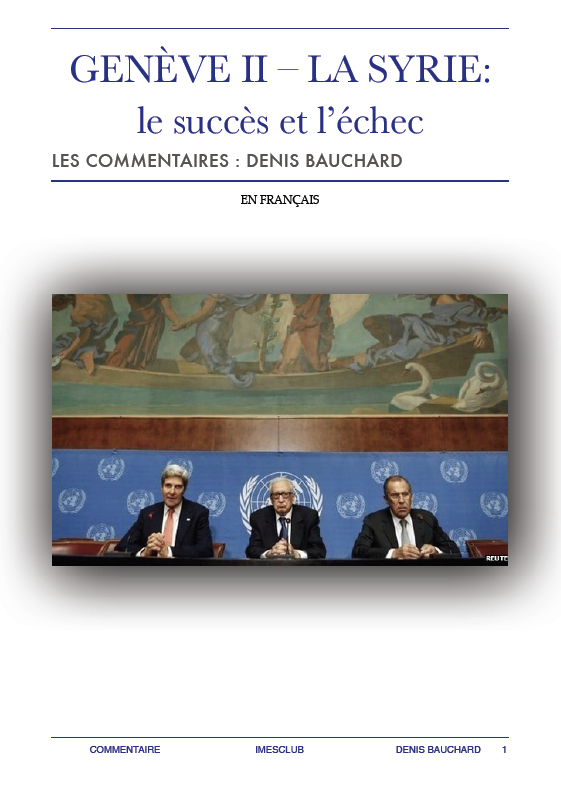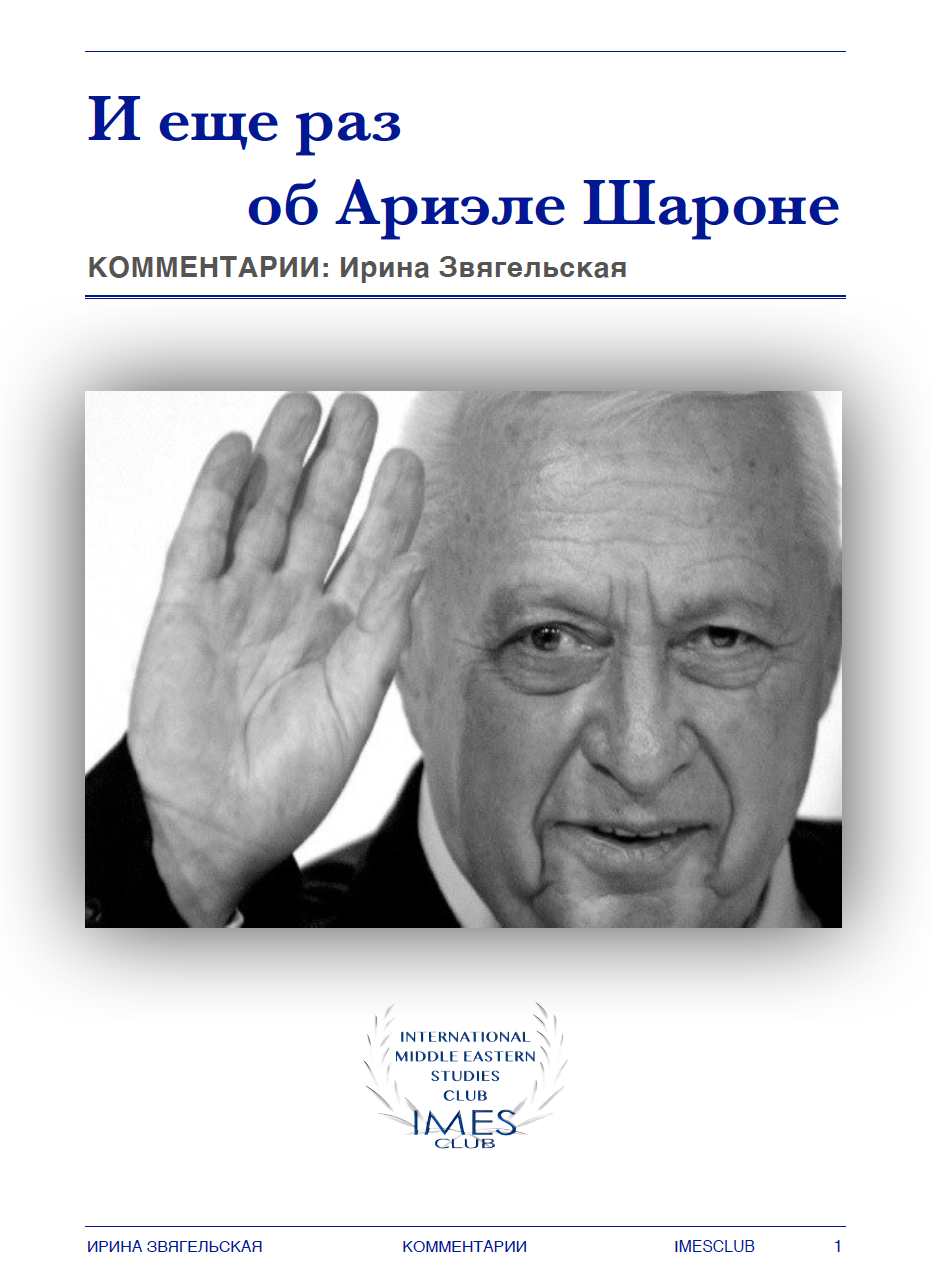
Commentaries (20)
Irina Zvyagelskaya explains why the current Palestinian government poses any difficulties for the states which consider HAMAS a terrorist organization.
Written by Irina Zvyagelskaya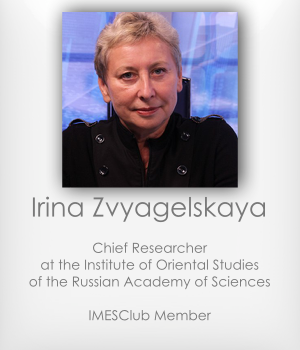 The Palestinian government of the national unity that took oath on the 2d of July 2014 is a technical one – it consists of ministers who are not members of FATAH and HAMAS. Such composition does not pose any difficulties to maintain the relations between the new government and the states where HAMAS is blacklisted and considered a terrorist organization. According to the head of Palestinian Autonomy Mahmud Abbas this government recognizes Israel and all the agreements previously signed with it and it renounces violence. Thus, highlighting the respectability of the new government Abbas has shown the observers that it will not be influenced by the well-known severe approaches of HAMAS.
The Palestinian government of the national unity that took oath on the 2d of July 2014 is a technical one – it consists of ministers who are not members of FATAH and HAMAS. Such composition does not pose any difficulties to maintain the relations between the new government and the states where HAMAS is blacklisted and considered a terrorist organization. According to the head of Palestinian Autonomy Mahmud Abbas this government recognizes Israel and all the agreements previously signed with it and it renounces violence. Thus, highlighting the respectability of the new government Abbas has shown the observers that it will not be influenced by the well-known severe approaches of HAMAS.
Overcoming the divide in the Palestinian movement can positively influence the conflict settlement, granting the accomplishment of the agreements from the Palestinian side if they are achieved. It is time to decide for the Israeli government, which has negatively taken such turn of events. One of the most important tasks for the new government is to prepare for the legislative elections.
The new situation opens the possibility for HAMAS to legitimize by gradually transforming into a parliamentary political party. Essentially, in current conditions, when HAMAS is rapidly loosing support in the Arab world (and is banned in Egypt), it does not have many variants.
Lana Ravandi-Fadai on the Rouhani's speech on the 1th March and the media reaction
Written by Lana Ravandi-Fadai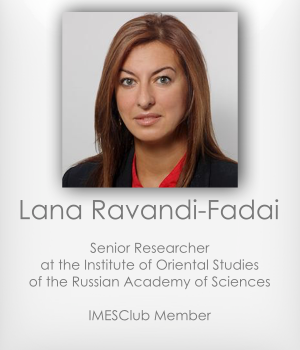 I was rather surprised these weeks that media were flooded with coverage of Rouhani’s announcement that “Iran renounces the development of nuclear weapons” because there’s nothing new in this recent announcement, as a look at Russian, English or Farsi websites shows. He simply reiterated that the creation of nuclear weapons would contradict the fatwah (decree) by Ayatollah Khamenei that forbids the production, storage and use of any of WMD. This was not a formal, first-time declaration but has been repeatedly voiced by Iran. If you want to know my opinion, however contradictory this may sound, Iran will adhere to this this fatwah while striving to achieve breakout capability. Iran will not deny itself the right to enrichment uranium for this reason and because its population of approximately 80 million needs cheaper energy. But again, Iran is tired of sanctions. It is ready to make concessions. Rouhani, known as the “Sheikh of Diplomacy” for his successful negotiations in October 2009, is holding the presidential reigns now, so we are seeing more flexibility.
I was rather surprised these weeks that media were flooded with coverage of Rouhani’s announcement that “Iran renounces the development of nuclear weapons” because there’s nothing new in this recent announcement, as a look at Russian, English or Farsi websites shows. He simply reiterated that the creation of nuclear weapons would contradict the fatwah (decree) by Ayatollah Khamenei that forbids the production, storage and use of any of WMD. This was not a formal, first-time declaration but has been repeatedly voiced by Iran. If you want to know my opinion, however contradictory this may sound, Iran will adhere to this this fatwah while striving to achieve breakout capability. Iran will not deny itself the right to enrichment uranium for this reason and because its population of approximately 80 million needs cheaper energy. But again, Iran is tired of sanctions. It is ready to make concessions. Rouhani, known as the “Sheikh of Diplomacy” for his successful negotiations in October 2009, is holding the presidential reigns now, so we are seeing more flexibility.
GENEVA-II – SYRIA: success and failure [in En and Fr]
Written by Denis BauchardGENEVA-II – SYRIA:
SUCCESS AND FAILURE
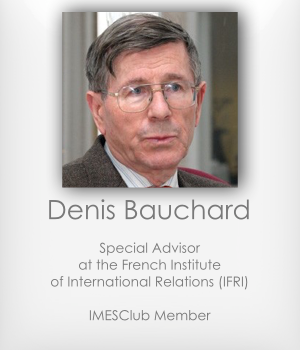 The fact that Geneva-II took place is indeed a success itself, as initially there was a lot of skepticism about the possibility of holding a conference on Syria, taking into account the deep divide between the Syrian authorities on the one hand and the opposition on the other, including the Coalition.
The fact that Geneva-II took place is indeed a success itself, as initially there was a lot of skepticism about the possibility of holding a conference on Syria, taking into account the deep divide between the Syrian authorities on the one hand and the opposition on the other, including the Coalition.
But it must be said that this conference has not yielded any tangible results, and in this very sense it is still a failure. The only tiny breakthrough was achieved not right away but a few days later concerns humanitarian aspects and the possibility of providing humanitarian aid to the besieged people of Homs. But the fulfilment of this decision faces serious implementation difficulties.
Why did this failure of the Geneva-II take place? In fact the conference was some sort of a shadow theater. There was essentially a reaffirmation of the already known positions. Concerning Bashar al- Assad, we are manifestly not willing to negotiate seriously for many reasons : it is due to the fact that the regime feels strong in both militarily and diplomatic terms .
On the military terms, he managed to avoid falling of the major cities into the hands of the rebels and he is gradually regaining control of the cities of Hama, Homs , Aleppo and Damascus. He is also in a strong political position, while the Coalition that unites the "democratic" opponents is more divided than ever, even though it could seem united at a first sight. The Syrian representative, Mr Walid Moallem took the opportunity to develop in Geneva an extremely aggressive and uncompromising rhetoric.
However, despite its weaknesses, the opposition has apparently demonstrated, that it is holding a solid position. It looks good and perhaps has even acquired a new legitimacy. A sign of this is a meeting of its president Ahmad Jarba with Russian authorities in Moscow. But does this opposition truly represent all the fighters? It is probably less representative, as the majority of fighters on the ground belong to rather Salafi or jihadi groups.
In fact the current issue exceeds the Syrian territory. The promotion of democracy is not a common goal for all the combatants. The situation in Syria is becoming a concern for several reasons. First of all, Syria becomes a seat of international jihadism, with groups that claim methods and ideology of Al Qaeda. This can worry the international community, particularly the United States, Europe and Russia.
What is happening in Syria more and more appears to be a clash between Sunnis and Shiites and beyond this religious conflict there is a clash between two rival powers such as Iran and Saudi Arabia. It became a sort of proxy battlefield between the two great powers of the Middle East that are competing for influence not only in the Persian Gulf but also in the Muslim world.
Given this situation how will the events develop? Several factors must be taken into consideration. On the one hand, even if the regime of Bashar Al -Assad is now in a rather strong position, it has a number of weaknesses. He had to resort to the help from Iran, that has sent units of the Al-Quds Brigade and many "advisors" who came to give him effective support, particularly in the field of intelligence and urban combat. Hezbollah has sent many seasoned battle-hardened soldiers, but Hezbollah is a shady ally. Finally, the regime did not hesitate to mobilize poorly organized Alawite militia, over which it is loosing control, to defend itself and fight the opposition.
In fact one may wonder if the regime itself has any interest to negotiate.
It is clear that Europe, the United States and Russia have a number of mainly mutual interests to take care of in the context of this conflict: the Western countries and Russia are very concerned by the development of jihadism that may threaten their long-term security. In fact, among the jihadist combatants there are many citizens of these countries. Taking France alone, 700 French citizens left for jihad in Syria.
There is also a mutual interest as our countries are very concerned about the prospects of the Syria's fragmentation, remembering the example of Iraq that would make the Middle East a zone of uncontrolled turbulence.
There is only a political solution: military solution is unacceptable in present circumstances. This solution requires the absence of prerequisite conditions for the negotiations and more discreet negotiations than those currently taking place within the framework of the Geneva to make them more efficient. They should include all the concerned parties, all the concerned countries: the presence of Iran as well as of Saudi Arabia is essential to arrive to a solution. A political solution should not only provide a transitional government, but also a guaranteed plan to protect minorities.
These negotiations can only be difficult and long. Russia, the United States and Europe are interested in putting pressure on both Iran and Saudi Arabia on the one hand but also on the Damascus authorities as well as the Coalition on the other hand to reach a compromise solution.
Available in French just in one click;
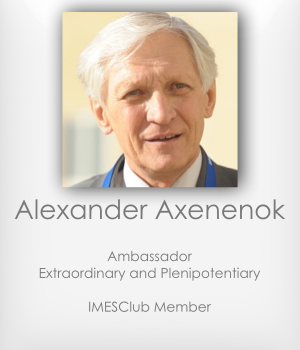 The first round of talks on Syria ended yesterday in Geneva. Now it’s important to figure out the outcome of the first round. Certainly, bearing in mind the severity of the internal conflict, the extent of violence and mercilessness in struggle for power in this unfortunate country one hardly anticipated any kind of quick and considerable shifts in its resolution. Nevertheless the very fact of holding a conference that wasn’t sabotaged by direct conflicting parties expressing public recriminations and along with divergent positions looks reassuring. It is worth mentioning that despite the fact that talks were indirect through the agency of experienced diplomat Lakhdar Brahimi the fiasco was avoided, though Mr. Brahimi himself anticipated any kind of unexpected events. This didn’t happen what is also promising.
The first round of talks on Syria ended yesterday in Geneva. Now it’s important to figure out the outcome of the first round. Certainly, bearing in mind the severity of the internal conflict, the extent of violence and mercilessness in struggle for power in this unfortunate country one hardly anticipated any kind of quick and considerable shifts in its resolution. Nevertheless the very fact of holding a conference that wasn’t sabotaged by direct conflicting parties expressing public recriminations and along with divergent positions looks reassuring. It is worth mentioning that despite the fact that talks were indirect through the agency of experienced diplomat Lakhdar Brahimi the fiasco was avoided, though Mr. Brahimi himself anticipated any kind of unexpected events. This didn’t happen what is also promising.
One can be guardedly optimistic to presume that until the beginning of the second round of talks scheduled for February 10, 2014, conflicting parties will do their homework in direct contact with two prime sponsors of the Geneva-2 – Russia and the USA – with the UN assistance. It seems like the door of diplomacy is still open on finding a compromise, however it will be hard to strike it and for sure this will take long. Before February 10 it is of crucial importance to maintain contacts and undertake confidence-building measures discussed during the first round. In particular this relates to unblocking humanitarian situation in Homs. This issue was particularly stressed by the Syrian opposition and specifically discussed during the talks. Another question is that parties see different priorities and interpret phrasing of the Geneva-1 final document differently. However its phrasing can be interpreted differently. This is diplomacy. Otherwise Geneva-1 could end up without result. Variant readings were during resolution of conflicts in Bosnia and Eastern Slavonia. But having any kind of core document is better rather than having none. This is the alphabet of diplomacy. Now there comes a point to prepare ground for further negotiations. The cornerstone could be rather made of anti-terrorism efforts, claimed by the Syria government delegation, or discussions around transitional government body composition and authority, written down in the Geneva-1 final document.
I think both issues are equally reasonable. If same perception formed this might create atmosphere for compromise. One should complement another. If negotiations follow this path, the second round of talks may be more productive than the first one.
Translated from Russian by Evgenia Efimova
 Ariel Sharon was a prominent figure. He was loved and hated, he was admired and treated as a hero, he was cursed not only by his Arab enemies but also by adherents of ultra-left and ultra-right forces inside Israel. He was a source of irritation and an object of national pride for his countrymen. Ariel Sharon’s personal character was formed by a specific epoch that demanded courage and heroism and at the same time did not put restraints on the use of any military and political means. He lived his life in a struggle for building the State of Israel, for its consolidation, in a fight with challenges that this State had been facing.
Ariel Sharon was a prominent figure. He was loved and hated, he was admired and treated as a hero, he was cursed not only by his Arab enemies but also by adherents of ultra-left and ultra-right forces inside Israel. He was a source of irritation and an object of national pride for his countrymen. Ariel Sharon’s personal character was formed by a specific epoch that demanded courage and heroism and at the same time did not put restraints on the use of any military and political means. He lived his life in a struggle for building the State of Israel, for its consolidation, in a fight with challenges that this State had been facing.
Sharon passed a long way in the army, and became a well-known military leader, and was glorified for his struggle with Arab armies on the battlefields, and for his war on terrorism. The Israel citizens seen him as a defender, that can ensure the safety of people. The majority voted for him during the Second Intifada of the 2000. At that epoch the suicide bombers have come on the foreground and the society was seeking for a strong hand and believed in its “Arik” as in the savior.
Being in the army, Sharon sometimes undertook reckless decisions, although mostly won, than lost. His tank breakthrough through the Suez Canal and the raid in Egyptian rear during the war of 1973 are studied in military academies.
During his military career he spilled much blood, and it was not always justified. It’s enough to recall the Israeli invasion in Lebanon in 1982, when Ariel Sharon occupied the post of the Minister of Defense, or endless bombardments of Beirut, or a bloody story in Sabra and Shatila, when Christian militia slaughtered Palestinians in refugee camps, and the Israeli army has done nothing to stop its allies.
Later there were investigations in Israel, claims to the International Court, and Sharon’s career was heavily hurt, but things gradually returned to normal. He has made a bright political career finally taking the prime minister seat.
And here we see slightly other Sharon, who has not betrayed his principles but who has changed the means to achieve his goals. All his life he was trying to assure the security of Israel, to achieve a stable arrival of immigrants and to make Israel a viable state that nobody could threaten. These were his priorities. They meant both the creation of the settlements and the pressure on the Palestinians and on the Arab countries. However new political reality and new high level of responsibility mad him make adjustments to his tactical steps.
Sharon, being one of the most strenuous supporters of the settlement policy, has made unpopular decision, not among the majority of population, but among the most right wing members of his own party, members of several religious parties and the Settlement Council. He assured the withdrawal from the Gaza Strip – the army and the settlers left the Strip, it was a very considerate turn.
Sharon, obviously, considered strengthening of Israel as the most important task, while Gaza was useless for that – one more bane. The decision of the PM meant his reluctance to negotiate with the Palestinians, disbelief for the ability to achieve any results profitable to the Israeli and firm believe in the idea that the Israeli leaders should unilaterally decide which territories are needed for the state. The paradox in such approach is thet leaving Gaza Sharon was demolishing the settlements which he had been forcing, building and supporting himself, though he had never questioned the necessity to build them on the West Bank.
It is often asked now, why do we speak so much about Ariel Sharon. He had left his political life long ago, and he has been severely struggling for his life for very long. The discussions, which have recently arouse, prove that Sharon has taken a whole epoch with him. He was one of the few left from his generation, who made all their best to establish the Israeli state on the map, to make it strong and viable. There is no such figure in the Israel now, as the time gives birth to its own heroes. Moshe Dayan, Yigal Allon, Yitzhak Rabin, Ezer Weizman, Ariel Sharon were the military, who became politicians and who were following different political views, but who chose the most important role in the life – the service to their people and state. Ariel Sharon was so ill and was leaving for so long that all his hard critics have become silent long ago. Many Israelis remembered him with gratitude and forgot and forgave his wrongdoings and mistakes which were due to his hard and tough spirit, but which lacked greed.
Available in Russian in one click (pdf):
COMMENTARY : Vasiliy Kuznetsov on the resignation of the Cabinet of Ali Laarayed
Written by AdministratorThe resignation of the Cabinet of Ali Laarayedh and forthcoming appointment of a new Prime Minister Mehdi Jomaa are the results of the national dialogue, which has been lasting for several months. For the moment the question is how much does the change of the Cabinet will help the country to recover from the political crisis in which it has been plunged at least since February. In my opinion, this resignation is not enough, because the key opposition force "Nidaa Tunis ' didn’t take part in the national dialogue and the candidature of Jomaa does not reflect the opinion of the major part of the society and of the political establishment. On the other hand, the problem of the political crisis in Tunisia resigns not on only in subjective, conjunctural reasons, related with social polarization and confrontation between the ruling coalition and opposition forces. It is much more resigns in objective reasons as monstrous persisting recession, the lack of public security, the spread of terrorism, etc. Will the new cabinet be able to solve all these problems – the time will show. Despite the optimistic statements by numerous politicians (including - representatives Nidaa Tunis), there is a suspicion that the new Cabinet will be as weak as the previous one. Additional argument in favor of this thesis is that the resignation of the government now has once again happened under the street pressure, and that means that the new cabinet will have very limited ability to take unpopular but necessary measures.
Paradoxically, to some extent Laarayedh’s resignation could play into the Islamist’s benefit because they partly relieves their responsibility for the political situation in the country and especially for the security situation . After all the Prime Minister Ali Laarayedh in this respect was compromised figure – before becoming the prime minister , he was the Minister of the Interior , and that was a period when the country faced of security problems: such actors as Ansar al- Sharia, Ligue de protection de la revolution and others began to act.
By turn, the consistently nihilistic position of opposition forces can play with them a bad joke. On the one hand, they are supported by the street, that is disaffected towards the Troika , but on the other hand - they are dogmatists , incapable to negotiate and to reach any consensus.
Despite the obvious benefits of this position today, tomorrow the situation may turn against them and add points to the Islamists.
Vasiliy Kuznetsov specially for IMESClub




